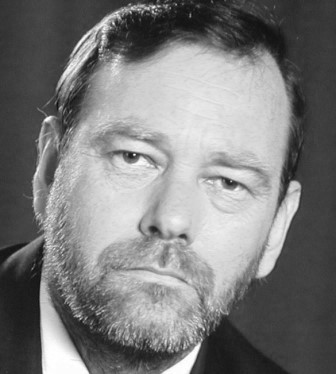The meaning of Trump

Trump has a massive ego, the appetites of a supreme narcissist and the language of a fascist. But he has a finely tuned popular antenna that has again taken him to the gates of the White House. He is an extraordinary symptom of tectonic shifts in geopolitics and geoeconomics.
Win or lose on 5 November, Trump as a phenomenon tells us much about where the United States is heading as ‘the dysfunctional superpower’.
If he wins, Trump will have another four years to turn the popular mood into policy. In defeat, though, Trump is still a symptom that signposts the future. The trends he expresses will endure to shape the temperature and tone of US politics and foreign policy.
Trump revolutionised the Republican Party. America’s conservative party is transformed into a more rabid beast. Republican grandees shake their heads in woe and wonder. America’s trade policy is remade, even as US economic influence in Asia declines.
The protectionist consensus is at its strongest in American politics since the Great Depression, nine decades ago. The economic instinct feeds an isolationist mood that will push at US strategy and alliances. The one international question that unites Washington is the new cold war with China.
Turn to a couple of Republican grandees to see how this shapes America’s future. The ‘dysfunctional superpower’ label is from Robert Gates, who served as defence secretary in both Republican and Democrat administrations (an unimaginable double in these fevered times).
Gates fears that a divided America has no long-term strategy to prevail in the struggle with Russia, China, North Korea and Iran. He judges that ‘dysfunction has made American power erratic and unreliable, practically inviting risk-prone autocrats to place dangerous bets—with potentially catastrophic effects.’
The diagnosis from Condoleezza Rice, national security adviser and secretary of state to president George W Bush, is that the ‘new four horsemen of the apocalypse—populism, nativism, isolationism, and protectionism—tend to ride together, and they are challenging the political centre.’
Rice says the US needs an internationalist president, explaining ‘what the world would be like without an active United States’. Looking beyond Cold War II, Rice sees analogies with today’s dilemmas in
“the imperialism of the late nineteenth century and the zero-sum economies of the interwar period. Now, as then, revisionist powers are acquiring territory through force, and the international order is breaking down. But perhaps the most striking and worrying similarity is that today, as in the previous eras, the United States is tempted to turn inward.”
Globalisation may not be dead, but the Trump symptom says it’s ailing. The US has given up on free trade. In the region that matters to Australia, the Indo-Pacific, the US has gone AWOL on trade issues since Trump withdrew from the Trans-Pacific Partnership the day he became president in 2017.
Trump’s campaign promise this time is to boost tariffs on all US imports by 10 percent and increase tariffs on China by 60 percent. A Republican candidate who gets his history from television brandishes the beggar-thy-neighbour protectionism of the 1930s.
Asia wants the US to help achieve strategic balance, not deliver trade war. A rich new era of Asian commerce arrives, marked by the decline of US economic influence. As Asia trades with itself, China wins, trumping the US almost by default.
The ‘stark reality’ is that the US ‘will not be a partner in East Asian regionalism or show leadership on trade and global economic governance, for at least the next few presidential terms’, according to Peter Drysdale and Liam Gammon, writing in the East Asia Forum. The Democrats have offered no intellectual response to the slide into protectionism, Drysdale and Gammon observe, so Trump has defined the policy terrain:
“The ‘America First’ trade policy has won a strategic victory over the past eight years, shifting the US bipartisan consensus towards the idea that globalisation was a lousy deal for Americans.”
The Trump effect has pushed at Washington’s Blob in profound ways. The Blob was an Obama-era description of the settled outlook of the foreign policy establishment. Trumpism points to generational change in the Blob’s operation. This is one of the deep differences between Joe Biden and Trump.
In foreign policy, Biden has repaired alliances and delivered traditional sermons on America’s central role in the world. Yet he will be the last US president whose policy instincts are rooted in Cold War I. In contrast, one of Trump’s few consistent messages is that the US was stupid to spend all its blood and treasure overseas while allies got a free ride. ‘No more lousy deals,’ he proclaims.
The generation that is stepping into the top jobs in Washington was in high school or heading to university when Cold War I toppled with the Berlin wall in 1989. Their understandings are shaped by the 9/11 attacks, America’s longest war in Afghanistan and the Iraq morass. For 20 years, until the last American aircraft left Afghanistan in August 2021, US soldiers were at war.
Trump’s message is that the era of war and global responsibility is over. And that view will weigh on America’s course, even if Trump fails.
This article was published by The Strategist.

Graeme Dobell has been reporting on Australian and international politics, foreign affairs and defence, and the Asia Pacific since 1975. He is Journalist Fellow at the Australian Strategic Policy Institute.














